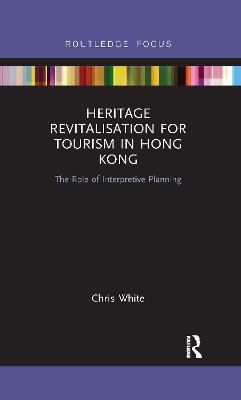Routledge Focus on Asia
1 total work
Heritage tourism is a global multi-million-dollar phenomenon, influencing national, regional and local cultural identities. Hong Kong finds itself at the confluence of several post-colonial economic, political and social developments and with this comes a greater awareness of the need for more meaningful cultural and heritage tourism products, especially in the form of revitalised heritage attractions.
Taking a qualitative approach and using semi-structured in-depth interviews with practitioners and stakeholders in the field, this study explores the role of interpretation in heritage revitalisation projects for tourism in Hong Kong. It seeks to examine why the interpretive element of these projects so often gets diminished during the course of implementation and outlines five propositions that may inform it going forward. Ultimately, the findings of this study suggest that, as issues of local identity become ever more important in Hong Kong, the role of interpretation in the development of its heritage tourism products needs to be holistic, integrated and consistent across public, private and non-governmental sectors.
Developing a framework of understanding to identify the contextual issues of interpretation and commodification, this book will be useful to students and scholars of tourism, heritage studies and Asian studies more generally.
